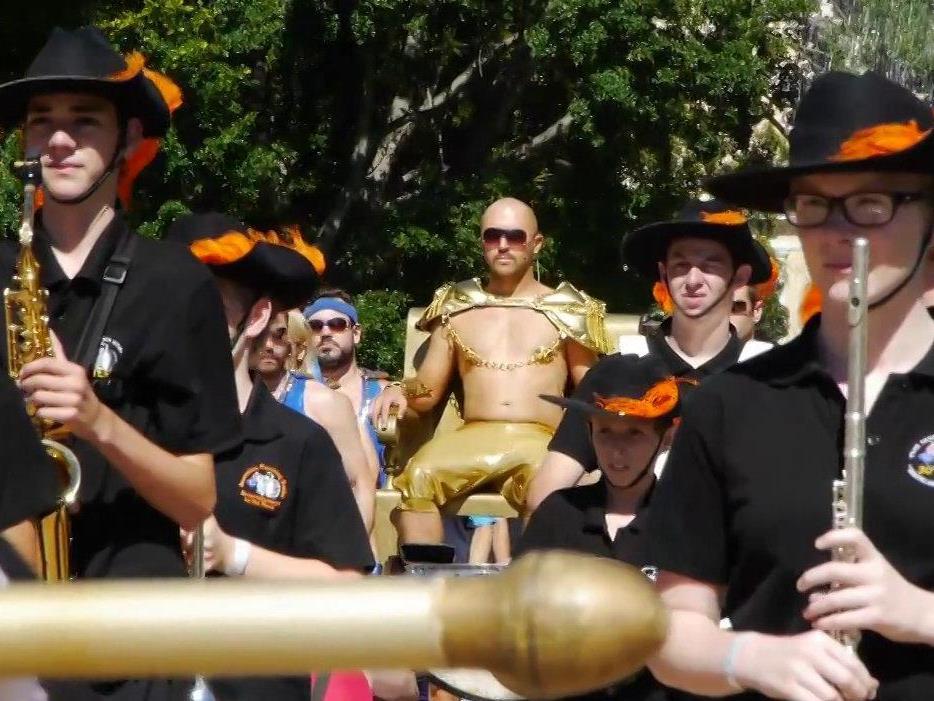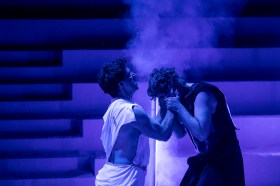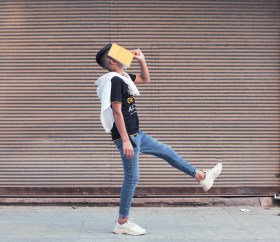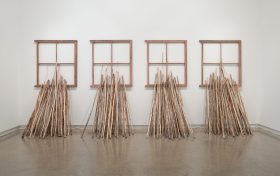Tristan Meecham: Fun Run 2013. Image courtesy http://vimeo.com/tristanmeecham.
Since Federation, Australian artists have immersed themselves in international artistic scenes, returning with new perspectives and opportunities. The British Council’s exchange programs, providing access to a rich network of contacts in Britain, play a vital role in developing the careers of Australian creative practitioners. These alumni have made valuable contributions to Australian life, with their overseas experiences continuing to bear fruit long after they depart Heathrow.
Sisters Maricor/Maricar lived in London for eight months in 2011 courtesy of Realise Your Dream. Although they had only recently established their own studio focussing on hand-crafted illustration and graphics, within a month of arriving they had signed with their first illustration agents, Handsome Frank. “Since that first signing we’ve found work globally. So we have a lot to thank the British Council for.”
The siblings’ time in the UK also included, “once in a lifetime experiences such as being invited by the Queen to Buckingham Palace on the eve of her visit to Australia.” The pair mused, “the cost of setting yourself up in the UK is high and without the support of the grant it’s beyond the reach of a lot of young artists. Having the British Council endorse you opens a lot of doors.” With recent commissions including work for Vogue Japan, we can expect big things from the duo.
Tommy Murphy is one of Australia’s most respected playwrights. His stage adaptation of Timothy Congrave’s novel Holding the Man has been performed every year since its premiere and Murphy is currently working on the screen version. Murphy travelled to the UK in 2009 courtesy of the British Council, lured by the opportunity “to spend time developing my craft and profession in one of the great theatre cities of the world.” Murphy returned to the city a number of times consequently. “The experience also led to an engagement outside of London as…I was commissioned by a company in Northampton to adapt Lorca’s play Blood Wedding which [was] staged as part of the 2012 Olympiad.”
Murphy’s trip also included moments of philosophical impact, such as tutoring from Ruth Little during a residency at the Royal Court Theatre. “A lecture she gave about what a play is, and how drama works in a play, was such a unique and original answer to these questions that it’s stayed with me and I reflect on it every week.”
Tristan Meecham returned only a month ago from three months in the UK courtesy of the British Council. The interdisciplinary artist, famed for his large-scale Coming Out Trilogy performances, explained, “because of the time spent there I was able to establish some substantial contacts with potential collaborators, in the hope of developing long term relationships.”
As a performer the in-person and immersive nature of a residency was an important drawcard, and the artist relished “being able to connect with [work] in a practical, kinaesthetic and experiential way.” Meecham sees open-ended residencies such as this as vital as they give artists “a chance to expand their practice and invest in it in a vertical way as opposed to having to provide a product.”
Two-person art collective Soda_Jerk travelled to the UK in 2011. Soda_Jerk saw the trip as a chance to further develop the research behind their video installations and live video essays which are constructed from sampled material. The pair had a jam-packed time, participating in residencies and festivals around the country.
An invitation to attend new media festival Abandon Normal Devices was a highlight. “Our work The Time that Remains was presented at the Liverpool Cathedral with a new score, composed and performed live by the anonymous hooded musicians Horrid.” The duo will return to Liverpool in 2016 for a residency and exhibition, an opportunity which evolved from their Realise Your Dream experience.
Speaking from Washington DC where they have just opened a solo exhibition at the National Museum for Women in the Arts, the pair affirmed that although “the internet may have radically transformed the nature of artistic practice…we feel strongly that the most concrete building of community and connections still begins in the outernets.”
As this role-call of Australian artistic talent makes clear, the British Council’s exchange programs provide a wealth of opportunities for emerging creatives. As Murphy enthused, “Young artists would be mad not to take notice of that generosity, and genuine interest the British Council have in building a bridge between Australia and the UK. I think the British Council see this as an exchange of ideas and personnel, and practitioners can cross back and forth across that bridge.”






